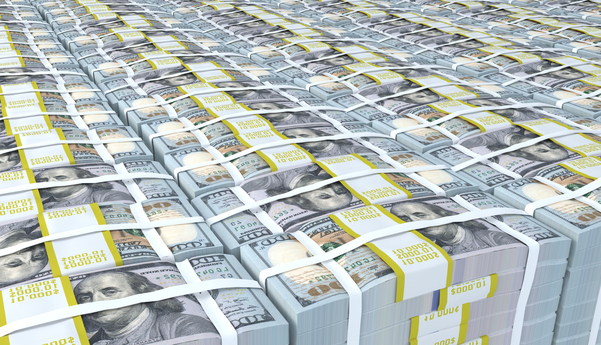Theories abound as to why Warren Buffett’s Berkshire Hathaway (BRK.A -2.20%) (BRK.B -2.03%) is currently sitting on the largest pile of cash in its long and storied history. Over the past year, the “Oracle of Omaha” has overseen his company’s large-scale reduction of several key positions including those in Bank of America and Apple.
The company’s sales of equities through the first nine months of 2024 total $133 billion. Buffett and his team have amassed a cash reserve of $325 billion. That is a lot of money to have on the sidelines — more than Berkshire has ever had — and comes at a time when markets are hitting historic highs. What is Buffett planning to do with all this cash?
Buffett’s past actions may hold the answer.
Buffett has a history of saving the day
In the aftermath of the Great Recession, Buffett was instrumental in keeping several major companies afloat. To be sure, this wasn’t simply out of the goodness of his heart; he made strategic investments that enriched Berkshire’s shareholders. Nonetheless, they were critical to each company’s recovery. The investments included:
- Goldman Sachs: The investment bank that played a key role in the lead-up to 2008 received $5 billion from Berkshire in September of that year. This provided Berkshire with preferred shares that carried a 10% yield and warrants to purchase stock at $115 a share. Berkshire ended up netting roughly $3.7 billion in about two years.
- Bank of America: Although Buffett sold out of much of his position this year, Bank of America has remained one of Berkshire’s top positions since it invested $5 billion in the bank in 2011. Bank of America was still struggling in the wake of the Great Recession. Like the Goldman deal, the preferred stock paid a hefty yield and came with warrants to buy the stock at what would be bargain-bin prices. When Buffett exercised the warrants in 2017, he netted his company an on-paper profit of $12 billion.
- General Electric: GE no longer exists as a single conglomerate, having spun off into three separate companies last year, but the industrial giant had become heavily involved in financial services in the years before the crash. As it rebuilt in the aftermath, Buffett stepped in with a $3 billion cash infusion. Again Berkshire was rewarded with interest-bearing preferred stock and warrants to buy more. All told, the investment brought in $1.5 billion in profit in nine years.
Buffett had a lot to say in his last letter
Buffett’s actions during the last “financial conflagration” — his term for major economic turmoil — clearly show he isn’t afraid to step in when times are tough to provide firm-saving investments, so long as it makes sense for Berkshire as well.
It’s not just his actions, however. In his 2023 letter to shareholders, Buffett makes it clear that he sees Berkshire as a sort of insurer for America’s economy, ready to step in when it’s needed.
Buffett writes:
Berkshire can handle financial disasters of a magnitude beyond any heretofore experienced. This ability is one we will not relinquish. When economic upsets occur, as they will, Berkshire’s goal will be to function as an asset to the country — just as it was in a very minor way in 2008-9 — and to help extinguish the financial fire rather than to be among the many companies that, inadvertently or otherwise, ignited the conflagration.
He believes that major upsets are worsened by the greed and “feverish activity” of much of Wall Street. Buffett is clearly concerned with the current state of the market, recognizing signs of this activity and “casino-like behavior.”
If these market dynamics do lead to another crash, Berkshire is certainly in a position to help save Wall Street from itself. With $325 billion to deploy, Berkshire could provide many firm-saving investments and help buoy the American economy.
There are other options
There are certainly other possibilities for why Berkshire has a record pile of cash on hand. Buffett may have a specific target in mind or perhaps he is preparing the company for the period of great transition that will come when he inevitably passes. He may want to provide as much flexibility and security as he can when this happens.
However, given his words and past actions, I think preparing Berkshire to weather a financial conflagration is the primary motivator here.
Bank of America is an advertising partner of Motley Fool Money. Johnny Rice has no position in any of the stocks mentioned. The Motley Fool has positions in and recommends Apple, Bank of America, Berkshire Hathaway, and Goldman Sachs Group. The Motley Fool has a disclosure policy.

